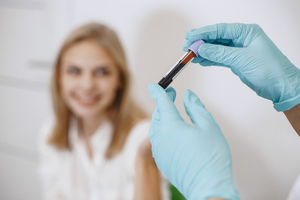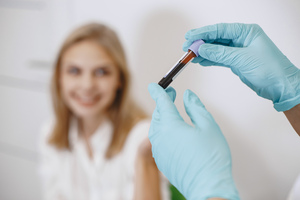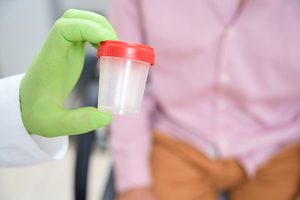H Pylori Test
in Arizona
Own a clinic? Add your location.
Help patients book appointments with you on Solv. It's free!
18 instant-book locations

Available times on Wednesday

Available times on Wednesday

Available times on Wednesday

Available times on Wednesday

Labcorp
Labcorp
Available times on Wednesday

Available times on Wednesday

Available times on Wednesday

Labcorp
Labcorp
Available times today

Available times on Wednesday

Available times on Wednesday

Available times on Wednesday

Available times on Wednesday

Available times on Wednesday

Available times on Wednesday

Labcorp
Labcorp
Available times today

Labcorp
Labcorp
Available times on Wednesday

Available times on Wednesday

Available times on Wednesday
National Medical Testing Center
National Medical Testing Center
Own a clinic? Add your location.
Help patients book appointments with you on Solv. It's free!
Arizona H Pylori Tests
An H. pylori test can be used to determine whether you have a bacterial infection caused by H. pylori. If you have signs of a digestive disease, your doctor may request this test so that you can be treated as soon as possible to avoid major complications. This test can also tell you if your current H. pylori infection therapy is working properly.
A breath test, blood test, stool test, and biopsy are among the H. pylori testing available.
Your doctor will have you ingest a specific chemical that your body converts to carbon dioxide during the breath test. After that, you'll exhale into a gadget that can detect the presence of H. pylori. Your doctor may prescribe a
During the blood test, your doctor will take a small sample of blood from your arm with a tiny needle. After that, your blood will be checked for H. pylori antibodies to see if you've had an infection.
Your doctor will ask you to produce a sample of feces for the stool test, which can reveal if you have an H. pylori infection or whether it has been effectively treated.
Your doctor will take a small sample of tissue from the lining of your stomach during the biopsy test. Because this test is more invasive than other H. pylori testing, it is normally done in a hospital or clinic. Your doctor will provide anesthesia to you and place you on an operating table.
H Pylori Test FAQs
How do you test for H. pylori?
H. pylori can be discovered by a blood test, stool test, breath test, or biopsy, among other procedures. Each of these tests detects H. pylori in a different way and requires distinct preparation processes. More information on what your test will include and how to prepare can be obtained from your doctor or the H. pylori testing provider.
How much does an H. pylori test cost in Arizona?
The price of an H. The cost of a pylori test is determined by a variety of factors, including the type of test performed, testing provider fees, geographic region, and whether the test is covered by your health insurance plan. The best approach to figure out how much an H. pylori test is to confirm rates directly with the testing provider or to contact your health insurance provider for more information about your benefits and coverage.
Does insurance cover H. pylori testing in Arizona?
Many health insurance plans will pay some or all of the costs of H. pylori testing, particularly if your doctor determines that it is medically essential based on your symptoms and health condition. Check with your insurance provider to see if your plan covers H. pylori testing and if you'll be responsible for any out-of-pocket expenses.
What is an H. pylori test?
The presence of H. pylori bacteria in the digestive tract is usually detected with an H. pylori test. H. pylori can cause gastritis, peptic ulcers, and stomach cancer, among other digestive infections and illnesses. An H. pylori test can also be used to rule out H. pylori infections and determine if existing H. pylori therapies are effective.
Who should get an H. pylori test?
An H. pylori test can help detect or rule out associated illnesses for anyone who is having digestive issues or symptoms of a digestive disorder. Abdominal pain and bloating, nausea, vomiting, diarrhea, appetite loss, and weight loss are all signs of a digestive disease. Those who are being treated for an H. pylori infection may be given an H. pylori test to see if their treatment is functioning properly.
What does it mean if you test positive for H. pylori?
Infections with H. pylori are totally curable. If you have H. pylori, your doctor will discuss all of your treatment choices with you and prescribe the best one for you. Antibiotics and acid-reducing medications can effectively cure H. pylori infections. Following the completion of your therapy, your doctor may arrange additional tests to ensure that the bacterium has been removed from your system.
How should I prepare to take an H. pylori test in Arizona?
Each H. pylori test has its unique set of preparation instructions. There is no need to prepare for the blood test. If you're having a breath, stool, or biopsy test, your doctor will inquire about any medications you're taking and may advise you to avoid taking specific prescriptions for up to two weeks before the test if they're known to cause problems. If you're having a biopsy, you may need to fast for at least 12 hours before the procedure.
How long does it take to get H. pylori test results in Arizona?
The H. pylori blood test typically takes 24 hours to complete, but the breath and stool tests can take as little as a few hours. A biopsy test performed by endoscopy normally yields results in 48 hours, while a cultured biopsy sample yields results in 10 days. The H. pylori testing company can provide you with a more precise timeline for receiving your results.
Where should I get an H. pylori test in Arizona?
Various healthcare providers, including hospitals, urgent care clinics, and walk-in laboratories, offer H. pylori testing. Your doctor may conduct an H. pylori test in the office or send you to a practitioner who does. If your doctor does not refer you to a specific H. pylori testing provider, you can utilize Solv to find one in your area.
How accurate are H. pylori tests?
The most accurate technique to identify whether you have an H. pylori infection is to do an H. pylori biopsy, which involves extracting a sample of tissue from the stomach lining. Another highly accurate testing approach for diagnosing an H. pylori infection, according to evidence, is a stool antigen test. Based on the most recent scientific findings and evidence, your doctor can advise you on which testing procedure is the most accurate.

Updated on Apr 25, 2025
Solv has strict sourcing guidelines and relies on peer-reviewed studies, academic research institutions, and medical associations. We avoid using tertiary references.
Related Searches
DOT Exam in Arizona
Ear Wax Removal in Arizona
Physical Exam in Arizona
Sports Physicals in Arizona
A1C Test in Arizona
Allergy Testing in Arizona
Basic Metabolic Panel in Arizona
Blood Test in Arizona
CMP Test in Arizona
COVID-19 Antibody Test in Arizona
Cholesterol Test in Arizona
DNA Test in Arizona
Diabetes Test in Arizona
Diagnostic Test in Arizona
Drug Test in Arizona
Flu Test in Arizona
Glucose Test in Arizona
H Pylori Test in Arizona
Hepatitis test in Arizona
Lab Tests in Arizona
Mono Test in Arizona
Pregnancy Test in Arizona
Aetna Urgent Care
Blue Cross Blue Shield Urgent Care
Cigna Urgent Care
COVID-19
Flu
United Health Urgent Care
» All services in ArizonaEveryday Healthcare, Simplified
Expert advice to help you live your best life









